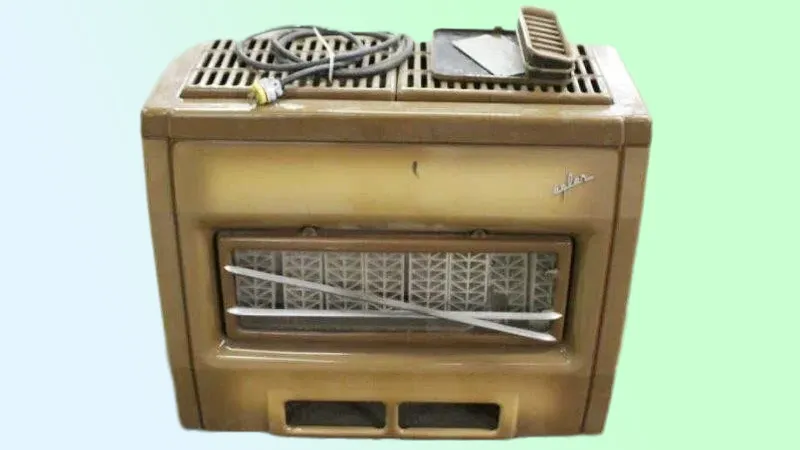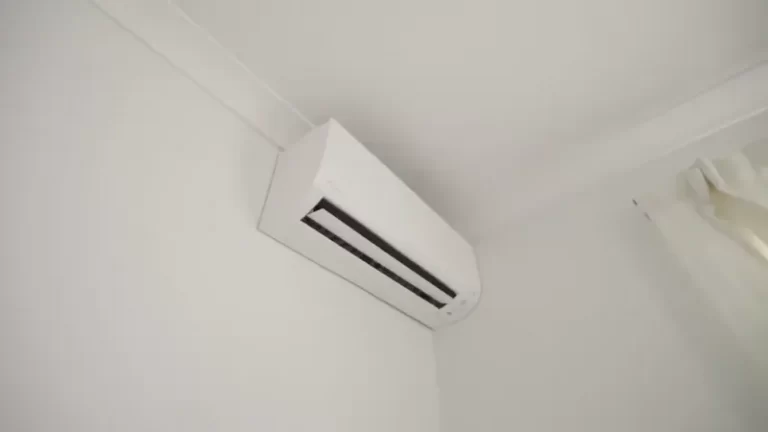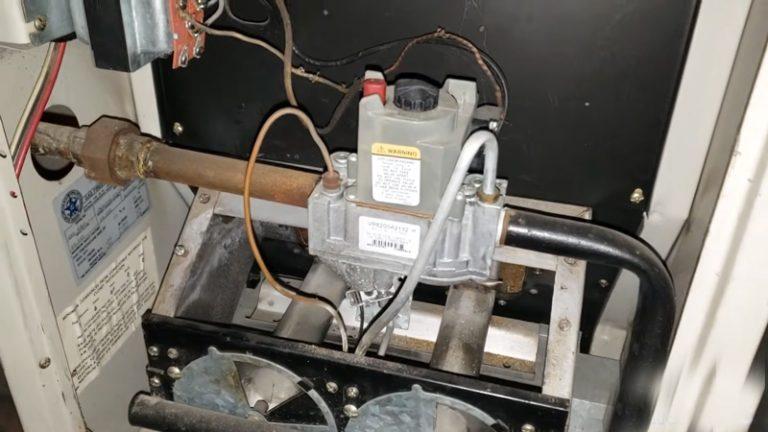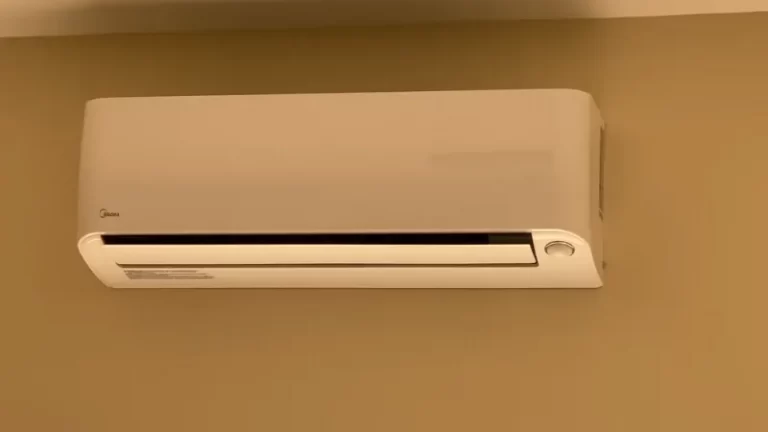Are Siegler Gas Heaters Any Good?

A Siegler gas heater is a type of heating unit that uses natural gas to provide warmth to a room or building. These heaters are typically wall-mounted and feature a blower motor and fan assembly to circulate the heated air throughout the space.
They are a popular choice for homeowners and businesses because they are cost-effective and energy-efficient compared to electric heaters. Some models also come equipped with a thermostat to control the temperature and a front grill or glass panel to protect the heating element.
Overall, a Siegler gas heater is a reliable and efficient way to heat a space.
You'll Learn About
Siegler Gas Heaters
Siegler gas heaters are a type of heating unit that use natural gas to heat a room or building. They are typically wall-mounted and feature a blower motor and fan assembly to circulate the heated air throughout the space. Some models also come with a thermostat to control the temperature and a front grill or glass panel to protect the heating element.
One issue that may arise with Siegler gas heaters is a build-up of dust and debris on the fan and motor assembly, which can cause the unit to shake and make a loud, rattle noise. To fix this issue, the back panel and fan assembly should be removed and cleaned thoroughly. Additionally, the front grill and glass panels should be checked for any loose hardware or gasket material that may be causing a rattle noise.
If the issue persists, it may be necessary to check the gas valve and other internal components to ensure that they are functioning properly. Without a manual or more information about the specific model of Siegler gas heater you have, it is difficult to give more specific troubleshooting advice.
It is generally not recommended to modify the wiring or electrical components of the heater without proper knowledge and training, as this can be dangerous. It may be best to seek the help of a qualified heating technician to properly diagnose and fix any issues with your Siegler gas heater.
Types of Siegler Gas Heaters
There are several different types of Siegler gas heaters available, each with its own unique features and benefits. Some common models include:
Console Heaters
These heaters are designed to be placed on the floor and feature a sleek, modern design. They often come with a built-in thermostat and a remote control for easy temperature adjustments.
Wall Heaters
Wall heaters are mounted on the wall and take up less space compared to console heaters. They are a good option for smaller rooms or tight spaces.
Infrared Heaters
Infrared heaters use a special type of heating element that produces heat waves that are absorbed by objects and surfaces in the room. This makes them particularly efficient at heating small spaces.
In terms of venting options, Siegler gas heaters can be either ventless or vented. Ventless heaters do not require any ventilation and are typically more energy-efficient because they do not lose heat through a vent.
Vented heaters, on the other hand, require a chimney or other ventilation system to release the exhaust from the burning gas. Vented heaters are generally more powerful and can heat larger spaces, but they are not as energy-efficient as ventless heaters.
Benefits of Using a Siegler Gas Heater
There are several benefits to using a Siegler gas heater for your heating needs:
Cost-effective
Gas heaters are generally more cost-effective compared to electric heaters, especially when it comes to long-term operating costs. Gas is typically cheaper than electricity, so running a gas heater can save you money on your energy bills.
Energy-efficient
Siegler gas heaters are highly energy-efficient because they do not lose heat through a vent like vented heaters do. This means that they use less energy to heat a space, which can result in even more cost savings.
Can Be Installed in Tight Spaces
Siegler gas heaters are compact and can be installed in tight spaces, making them a good option for small rooms or areas with limited space. They are also easy to install and do not require any special ventilation.
Overall, a Siegler gas heater is a reliable and efficient way to heat a space, and it offers significant cost and energy savings compared to electric heaters.
Maintenance and Care for a Siegler Gas Heater
Proper maintenance and care are important for keeping your Siegler gas heater running smoothly and efficiently. Here are some tips for maintaining your gas heater:
Clean the Unit Regularly
Over time, dust and debris can build up on the fan and motor assembly of your gas heater, which can cause it to run less efficiently and make a loud, rattle noise. To prevent this, it is important to clean the unit regularly. This includes removing the back panel and cleaning the fan and motor assembly, as well as cleaning the front grill and glass panels.
Check for Any Loose or Damaged Parts
Make sure to check for any loose or damaged parts on your gas heater, such as the front grill or gasket material. If you notice any issues, it is best to have them repaired or replaced as soon as possible to ensure that the unit is functioning properly.
Test the Thermostat
If your gas heater is equipped with a thermostat, make sure to test it regularly to ensure that it is working properly. You can do this by setting the thermostat to a different temperature and observing whether the heater responds accordingly.
Keep the Unit Properly Ventilated
It is important to make sure that your gas heater has proper ventilation to ensure that it is running safely and efficiently. This includes keeping the area around the unit clear of any clutter or debris and making sure that the unit is not obstructed in any way.
By following these tips and maintaining your gas heater regularly, you can ensure that it is running smoothly and efficiently for years to come.
Troubleshooting Common Issues With a Siegler Gas Heater
If you are experiencing issues with your Siegler gas heater, there are a few steps you can take to troubleshoot and fix the problem. Here are some common issues and solutions:
Rattle Noise
If your gas heater is making a loud, rattle noise, it could be due to a build-up of dust and debris on the fan and motor assembly. To fix this issue, you can remove the back panel and clean the assembly thoroughly. You should also check the front grill and glass panels for any loose or damaged parts that could be causing the noise.
Inefficient Heating
If your gas heater is not heating as efficiently as it used to, there could be a problem with the gas valve or other internal components. It is best to have a qualified heating technician diagnose and fix any issues with the gas valve or other internal components.
Malfunctioning Thermostat
If your gas heater’s thermostat is not functioning properly, it can cause the unit to either overheat or not heat enough. To troubleshoot this issue, you can test the thermostat by setting it to a different temperature and observing whether the heater responds accordingly. If the thermostat is not working properly, it may need to be repaired or replaced.
Overall, it is important to regularly maintain and care for your gas heater to ensure that it is running smoothly and efficiently. If you are experiencing any issues, it is best to seek the help of a qualified heating technician to properly diagnose and fix the problem.
Conclusion
In conclusion, a Siegler gas heater is a reliable and efficient way to heat a room or building. They are cost-effective compared to electric heaters and are highly energy-efficient, making them a good choice for homeowners and businesses looking to save money on their energy bills.
It is important to properly maintain and care for your gas heater by cleaning it regularly, checking for any loose or damaged parts, and testing the thermostat if applicable. By following these maintenance tips, you can ensure that your gas heater is running smoothly and efficiently for years to come.
If you are in need of a new heating system, we encourage you to consider using a Siegler gas heater for your heating needs.



